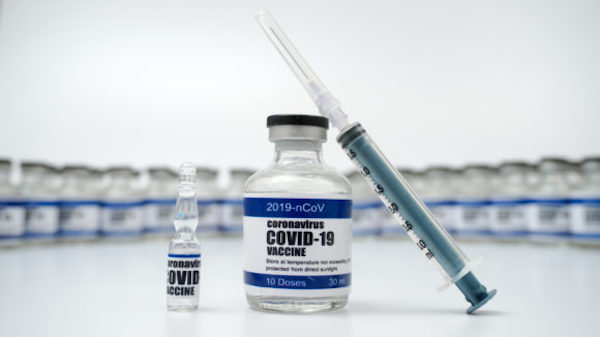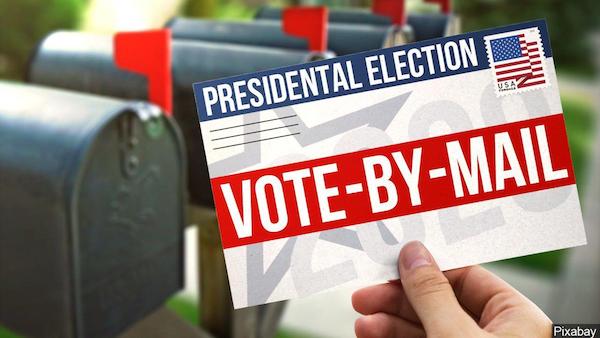

-
Winning more votes in the US Presidential election does not assure a candidate victory
-
Biden’s chances of defeating Trump look good, but there’s a long way to go and things can change very quickly
-
One factor which is affecting Trump’s re-election prospects is his handling of the coronavirus pandemic
“It cannot be overstated that U.S. Presidential elections are always contested over a host of political, economic, and social issues on which the positions of both the Republicans and the Democrats have evolved over time. As part of its economic conservatism, the Republican Party supports lower taxes, free-market capitalism, the removal of restrictions and regulations on corporations, and restrictions on labor unions. The party is also socially conservative and supports gun-rights and traditional values with a Christian foundation, such as restrictions on abortion. In foreign policy, Republicans usually favor increased military expenditure and tough action against America’s enemies. Republicans also want restrictions on immigration.The Democrats support social programs, labor unions, worker’s rights and work-place safety regulations, disability rights and racial equality and reform of the criminal justice system. They also support abortion rights, LGBT rights and a pathway to citizenship for undocumented workers. In foreign policy, they favor a multilateral approach, from which America under Trump has been distancing itself.”
|
There are fewer than 35 days to go before American voters decide on November 3 whether Donald Trump remains in the White House for another four years. Given the hugely important role played by the US President on the global stage, psephologists all over the world are working overtime as they try to analyze various trends and developments which could indicate what the final outcome is likely to be. Opinion polls are the flavor of the election season.
However, experience has shown that opinion polls may give an idea of how popular a candidate is across the United States, but they are not necessarily an accurate way to predict the eventual election result.
In 2016, for example, Hillary Clinton led in most of the opinion polls and even secured more votes in the election, but she ended up losing to Trump. Thus, even winning more votes in the US Presidential election does not assure a candidate victory.
One important reason for this is that the U.S. voters do not elect the President and Vice President directly; rather, they do so indirectly through the electoral college system. The electoral college is a body of electors who are elected by the voters in each state every four years for the sole purpose of electing the President and Vice President. The number of each state’s electors equals the sum of its representation in the Senate and the House of Representatives. Currently, there are 538 electors, based on 435 Representatives, 100 Senators from the fifty states and three electors from the Capital, Washington, D.C. An absolute majority of at least 270 electoral votes is required to win the election.
The three electors were given to D.C. following the Twenty-third Amendment of 1961 which states that the seat of the federal government is entitled to ‘the number it would have if it were a state, but in no case more than that of the least populous state’. The seven least populous states (Alaska, Delaware, Montana, North Dakota, South Dakota, Vermont and Wyoming) have three electors each; thus, Washington D.C. was also given three seats in the electoral college.
The six states with the most electors are California, (55), Texas (38), New York (29), Florida (29), Illinois (20), and Pennsylvania (20). U.S. territories (Puerto Rico, U.S. Virgin Islands, Guam, Northern Marina Islands and American Samoa) are not entitled to any electors.
Thus, each state gets a minimum of three electoral votes, regardless of population, which gives states with a low population a disproportionate number of electors per capita. An electoral college member in Wyoming represents only about one-fourth the number of people as compared to an elector from California. This is one factor which explains how a Presidential candidate can secure more electors while winning lesser votes nationally. Over time, people have been migrating to the bigger states like California, Texas or New York which provide better employment opportunities, and as a result sparsely populated states are becoming increasingly over-represented in the electoral college.
In this regard, another factor which needs to be mentioned is the winner-take-all rule. In all the states except Nebraska and Maine, the party which wins the highest votes wins all of that state’s electors. This gives the bigger states the ability to deliver a large number of votes as a single bloc. For example, even if the Republican Party wins 49% of the votes in Florida while the Democratic Party gets 51%, the latter will win all the 29 electoral seats from that state. This fact also distorts the relationship between votes secured and seats won nationwide.
Generally, most states always vote the same way (either always Republican or always Democrat). However, there are some states where both candidates stand a chance of winning. These are the states where the election could be won or lost, and they have come to be known as the battleground states (or swing states).
For the 2020 election, the battleground states (with their electoral numbers) are: Texas(38), Florida(29), Pennsylvania(20), Ohio(18), Michigan( 16), Georgia(16), North Carolina(15), Arizona(11), Minnesota(10), Wisconsin(10), Nevada(6), Iowa(6) and New Hampshire(4). According to analysts, Texas, Ohio and Iowa are leaning towards Trump; in Florida, Georgia and North Carolina there is a toss-up; the remainder are leaning towards Biden.
It was on account of so many complexities that Hillary Clinton found herself losing the 2016 election to Trump even though she won more votes than him. It may be mentioned, though, that her lead over Trump in the opinion polls had been just 2 percentage points, while Biden leads his rival by at least 7-8 percentage points.
By that reckoning, Biden’s chances of defeating Trump look good, but there’s a long way to go and things can change very quickly. Betting markets are certainly not writing Trump off just yet, though seasoned analysts are less convinced about his chances of re-election. The Economist says that Biden is very likely to beat Trump, and this view is echoed by ‘FiveThirtyEight’, a well-known US website that does poll analysis. Not surprisingly, Trump has dismissed the opinion polls and forecasts of his defeat as biased and incompetent.
One factor which is affecting Trump’s re-election prospects is his handling of the coronavirus pandemic; there is dis-satisfaction among voters about the President’s response. Trump declared a national emergency in March and made $50 billion available to states to stop the spread of the virus, after which support for him rose to 55%. However, this support has been waning recently. His response to the pandemic is being increasingly questioned as the death toll rises; it has crossed 209,000 and it is feared that it may reach 230,000 by November 3, the election date.
Naturally, Trump is worried on this account and wants to show that he is taking decisive action for combating the virus. He is hopeful that ‘Operation Warp Speed’, his administration’s vaccine initiative, can produce something soon which could swing things in his favor. Trump has repeatedly said a vaccine could be ready as soon as October.

However, the vaccine is getting mired in controversy even before it has arrived. According to U.S. media reports, the Federal Drug Administration(FDA) has been developing stricter guidelines for the emergency authorization of a COVID-19 vaccine which will include a requirement for a median of two months of data on clinical vaccine trial participants. In other words, the vaccine may not be available before November 3, the date of the election. Trump has dismissed this as a politically motivated move and said that if the F.D.A. does propose such a two-month trial, he may not approve it (i.e. the trial period).Trump said he wants to avoid any unnecessary delay in the release of a vaccine, adding that he has “tremendous trust” in companies working on its development.
“I don’t see any reason why it should be delayed further. Because if they delay it a week or two weeks or three weeks, you know, that’s a lot of lives you’re talking about,” he said.
The economy is typically a top voter-issue in presidential elections. Issues that are deeply personal to their everyday lives rank among the most important priorities that influence voters; their pay-cheques often figure at the top of the list of such issues.
Consequently, having a job is itself an important factor. This aspect has taken on new urgency with millions out of work because of the coronavirus pandemic.
Another issue that is gaining prominence during the build-up to the election relates to racism. Donald Trump has a history of speech and actions that have been widely viewed as racist or racially charged. Although Trump has repeatedly denied accusations of racism, he is increasingly viewed as championing white supremacy. Several studies and surveys have shown that racist attitudes and racial resentment have fueled Trump’s political ascendance. Thus, matters that impact communities of color are taking center stage in the elections as non-white voters make up about one-third of the 2020 electorate.

In this background, Joe Biden’s decision to nominate Senator Kamala Harris, the first Black woman and first Asian American woman as his running mate is an out-reach to colored voters as well as to women voters.
It cannot be overstated that U.S. Presidential elections are always contested over a host of political, economic, and social issues on which the positions of both the Republicans and the Democrats have evolved over time. As part of its economic conservatism, the Republican Party supports lower taxes, free-market capitalism, the removal of restrictions and regulations on corporations, and restrictions on labor unions. The party is also socially conservative and supports gun-rights and traditional values with a Christian foundation, such as restrictions on abortion. In foreign policy, Republicans usually favor increased military expenditure and tough action against America’s enemies. Republicans also want restrictions on immigration.
The Democrats support social programs, labor unions, worker’s rights and work-place safety regulations, disability rights and racial equality and reform of the criminal justice system. They also support abortion rights, LGBT rights and a pathway to citizenship for undocumented workers. In foreign policy, they favor a multilateral approach, from which America under Trump has been distancing itself.
While the calculations involved in a U.S. Presidential election are not at all simple, present indications are that Trump faces an uphill task for getting re-elected. Interestingly, Trump is sending out signals that he will not accept defeat. In a press briefing at the White House a few days back, he refused to say whether he would support a peaceful transfer of power if he loses November’s election, ignoring a precedent that every other president in American history has accepted.
As a matter of fact, a crisis is developing on account of the concerns which Trump has repeatedly voiced about postal ballots. He has claimed that the postal-ballot route will be misused by the Democrats, that it will result in voter fraud and thus cause his defeat. However, Ellen Weintraub, commissioner of the Federal Election Commission, has responded: “There’s simply no basis for the conspiracy theory that voting by mail causes fraud.”
Individual states decide their own voting rules for federal elections in the U.S. About half of the states allow any registered voter to vote by post on request. In the remaining states, you have to have a valid reason for voting by post – such as being over 65, being ill, or being away from the state you are registered to vote in.
 Interestingly, President Trump himself has voted by post in the past, such as in Florida’s 2020 primary election as he is a registered voter in that state but is currently living in Washington DC.
Interestingly, President Trump himself has voted by post in the past, such as in Florida’s 2020 primary election as he is a registered voter in that state but is currently living in Washington DC.
In the 2016 U.S. Presidential election, about 25% of votes were cast by post. That number is expected to rise this time due to public health concerns over coronavirus. Many states are encouraging mail-in voting, citing the need to keep voters safe from it. They want to prevent large gatherings at polling stations on election day–a justifiable approach given the prevailing situation.
Moreover, six states will hold “all-mail” ballot elections this November– California, Utah, Hawaii, Colorado, Oregon and Washington. These states will automatically send all registered voters their postal ballots, which then have to be sent back or dropped off on election day – although some in-person voting is still available in certain limited circumstances. More states could follow this route due to public health concerns over coronavirus.
Although every losing Presidential candidate in U.S. history has conceded defeat once he lost the election, Trump has refused to commit to a peaceful transfer of power in such an eventuality. When a reporter asked him a direct question on this issue, he did not say yes or no; instead, he gave an insight into his thinking and said, ” I’ve been complaining very strongly about the ballots”, adding, ” Mail-in ballots are very dangerous–there’s tremendous fraud involved”.
At a rally in Newport News, Virginia on Friday 25 September, Trump again refused to say whether he would peacefully transition out of the White House if he loses the presidential election, suggesting he would only do so if he was convinced Democrats and their presidential nominee, Joe Biden, did not cheat. “We’ve gotta watch this ballot scam, because they’re scamming us. And then they say, ‘He doesn’t want to turn over [power].’ Of course, I do. But it’s gotta be a fair election,” Trump told the crowd at the rally. Biden has said that in this scenario he believes the military would be deployed to remove Trump from the White House!
If he loses the election, Trump may still have some cards up his sleeve. He has said that he believes that the election result could end up in the U.S. Supreme Court. Backed by his battery of attorneys, he is believed to be preparing the groundwork to undermine an election result that does not announce him as victor.
In this context, importance is being attached to Trump’s selection of Judge Amy Coney Barrett, a favorite of the Republicans as a new Supreme Court Judge. She will take the place of Justice Ruth Bader Ginsburg, a liberal and a Clinton appointee who died recently. Trump has announced that he will try to obtain Senate confirmation for this appointment before Election Day. Biden and the Democrats are urging that the appointment should be made by the winner of the Nov 3 election, but the Senate, which has a Republican majority is likely to go ahead and give the confirmation. This is so because a Supreme Court judge in the U.S. serves for life , and Judge Amy Coney Barret, an avowed Conservative would significantly alter the ideological makeup of the Supreme Court for years to come and ensure that the Republican agenda is not obstructed by the Court.
For Trump, this appointment could be vital. The US Supreme Court has nine judges. After the death of Justice Ginsberg, there are three judges who are regarded as liberal, while four are conservative. The eighth is Chief Justice Roberts who has been described as having a conservative judicial philosophy but has also shown a willingness to work with the Supreme Court’s liberal judges. Thus, he has come to be regarded as a swing vote on the Court and Trump cannot rely on him to give a favorable judgement if his own election case is to be decided. Thus, if Judge Barrett is elevated to the Supreme Court, there will be at least five conservative judges, if not six who may side with Trump, which explains his rush to appoint her, as also Biden’s opposition to it.
To sum up, if you think that the Nov. 3 election battle has become ugly, then I would just say, “You ain’t seen nothing yet”.
(The author is a retired career diplomat. He can be reached at prabhu_dayal70@hotmail.com)
(Courtesy OPOYI)





Be the first to comment